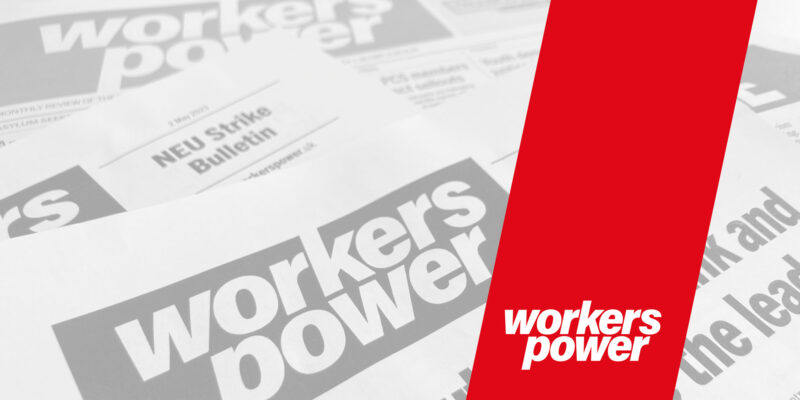By Svenja Spunck
THE HEADLINE results of Turkey’s presidential and parliamentary elections are that Recep Tayyip Erdogan has won the presidential election and the alliance of his “Party for Justice and Development”, AKP, and the Party of the Nationalist Movement, MHP, has secured a majority in parliament. The People’s Democratic Party, HDP, has again secured its entry into parliament, while the Republican People’s Party, CHP, has lost votes. The newly founded Iyi Parti has also made it into parliament.
If the result from the Edirne prison were representative of Turkey as a whole, it would today have a Kemalist president and the HDP would have an absolute majority in parliament. Erdogan and his AKP received not a single vote in the prison, which has been the permanent address of the HDP’s presidential candidate, Selahattin Demirtaş, for a year and a half.
The result in the “rest” of Turkey, however, is a disappointment for anyone who thought there might be a chance of some kind of democratic change. Although the AKP did not win a majority in parliament, it did manage, together with the MHP, to win around 53.6 percent of the votes for its electoral alliance, with 42.5 percent going to the AKP and 11.1 percent to the MHP. While this means that Erdogan’s AKP has secured government power, it has lost eight percentage points compared to the November 2015 elections.
The fact that the MHP was able to maintain its double-digit share of the vote was one of the big surprises of the election evening and gave opposition supporters reason to speculate about electoral fraud. In recent weeks’ polls, the MHP has always been well below the 10 percent threshold and could only have defended its seats in parliament through its alliance with the AKP. However, because some traditional AKP voters apparently lent their votes to the MHP, it was able to keep its approximately 11 percent constant. It had been expected that it would lose votes to the Iyi Parti of Meral Akşener, which had recently split off from the MHP. With exactly ten percent of the vote, Iyi did indeed make it into parliament, but this was far below the results predicted in surveys. In any event, the three most right-wing parties of the new Turkish parliament hold around 63 percent of the votes.
Manipulation
After the first figures from the state news agency Anadolu Ajansi, AA, were published on 24 June at 6 p.m. CEST, representatives of the CHP and HDP immediately spoke of massive manipulation of the results. While the ballot boxes were still open, there were reports of electoral fraud with forged ballots and violent clashes in some polling stations. International election observers such as Andrej Hunko of the German Left Party were refused entry to Turkey, and a comrade and observer from the ranks of the Interventionist Left was even briefly arrested.
Unfortunately, such incidents are nothing new in elections in Turkey. In the referendum in April 2017, votes for Erdogan were falsified and opposition voters were threatened. But the real fraud does not take place on election day, rather it lies the unfair conditions under which, for example, the HDP had to conduct its election campaign: no airtime for its presidential candidate on any of the state television stations, daily arrests of party members and permanent agitation by the government against the party are only a part of it. The demand for an explanation of the events on election day should nevertheless be made, at least by those who see themselves as an opposition party.
In the course of the evening, there was a big difference between the results of AA, which indicated a clear victory for Erdogan in the presidential elections, and the official figures of the High Electoral Commission, YSK. According to the online platform, Adil Seçim, which was founded by opposition parties, a runoff between Erdogan and Muharrem İnce might even have been necessary. Although the election results had not yet been officially confirmed, Erdogan announced his victory at midnight and İnce told the journalist İsmail Küçükkaya that “the man had won”. He thus shattered the hopes of voters who had been waiting for a challenge to the elections or at least a call for a serious investigation into allegations of electoral fraud.
To put it cynically, Erdogan’s victory in the first round at least spares many leftists, who were wrongly convinced that Ince was the lesser evil and that the return to the Kemalist state would offer the opportunity for genuine democracy, the farce of voting for him in the second round of voting.
The HDP result
One of the winners of the evening is the HDP. Despite all the repression to which the party has been subjected in recent years, it has once again managed to overcome the 10 percent hurdle. With 11.2 percent, it is the third strongest party in parliament and its presidential candidate, Demirtaş, also won third place. Traditional CHP voters in particular gave their votes to the HDP to reduce the seats the AKP would have and to prevent the HDP from failing at the 10 percent hurdle.
This partially explains the CHP’s losses, but only partially. While İnce scored 30 percent in the presidential election, his party only reached 23 percent in parliament. This falls short of even its already disappointing result of November 2015, 25.32 percent. Their result in the parliamentary elections and the unfulfilled hope that İnce could become the challenger to Erdogan in a run-off for the presidency will lead to a fundamental debate about the realignment of the party.
Erdogan’s confirmation as president, with even greater powers, the defence of the parliamentary seats of the HDP, despite an election campaign under the most difficult conditions, and the loss of CHP votes, together express the extreme division within Turkish society. The AKP is one of the few parties that did not promise the lifting of the state of emergency, but its political programme demands it in the long run. With the victory of the AKP, there is no prospect of a solution to Turkey’s economic problems, nor does the opposition, which campaigned for peace, justice and democracy, have any cause for hope. Defending these goals, however, said Pervin Buldan, co-chair of the HDP, is her party’s task for the coming period and she will continue to fight for it.
The situation in Turkey, however, will get worse and the economic crisis that is unfolding will play a decisive role. Especially young people who expressed their dissatisfaction with the government millions of times in the social media a few weeks ago with the #Tamam, “Enough”, movement and took to the streets, see no prospects with AKP politics. With this election by no means all hopes have been destroyed and fascism is not yet automatically on the agenda in Turkey, as some “radicals” are once again claiming, but the conditions under which leftists, socialists and oppressed minorities are fighting have certainly become even more difficult.
With the election victory, Erdogan has further concentrated power in the hands of the president. He will use it against the Kurdish nation, against the HDP, against resistance from the working class, the youth and all others threatened by the coming economic crisis through unemployment, impoverishment and devaluation of their savings.
From the right-wing and nationalist opposition, the İyi Parti and the CHP, nothing can be expected in this respect. The tasks of the socialist left, militant trade unionists and the HPD are rather to organise a joint fight against social attacks, for democratic rights and against national oppression. Erdogan won the elections, by whatever means, but the inevitable crisis of his “model of success” can also create the conditions for a common class struggle to bring down this Turkish Bonaparte.




